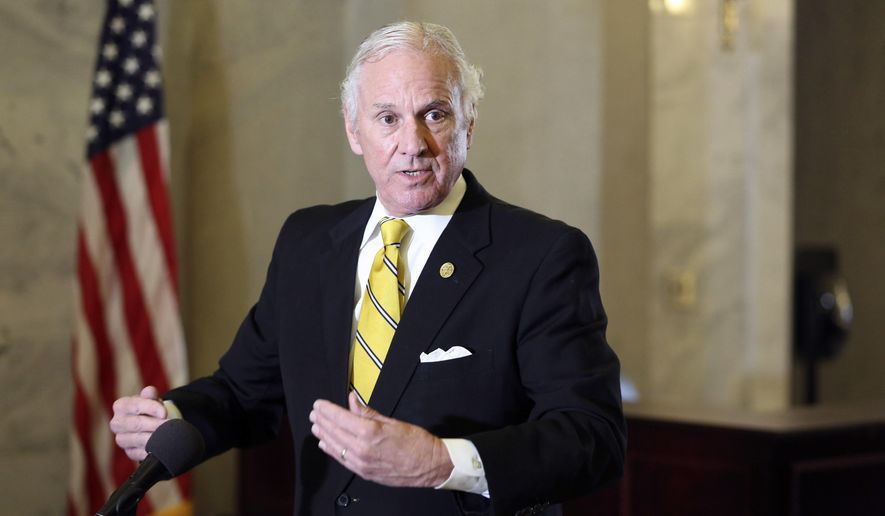The Supreme Court has grappled in recent years with laws barring public funds from going to religious schools, but an upcoming case could give the court’s conservative majority a new opportunity to tackle animus toward Catholics and private schools.
The new dispute between church and state comes out of South Carolina, where Gov. Henry McMaster, a Republican, created a grant program from part of the federal funding given to the state through Congress’ coronavirus relief package. The program allowed families to apply and receive grants to use for educational purposes at any school — public, private or religious.
The South Carolina Supreme Court, though, barred private and religious schools from receiving any of the grants, saying the state constitution’s Blaine Amendment forbids public funds going to private schools.
The Catholic Church and a trade association for private schools in the state took the legal battle to federal court last month, filing a new lawsuit challenging the Blaine Amendment as unlawful.
They said it targets Catholics and Black Americans because it was enacted after the Civil War when bigotry against Catholic immigrants was high, and there was a desire to keep freed slaves from being educated in Catholic schools.
The amendment bars more than just Catholic schools from obtaining state funding. It also bars several historically Black colleges and universities, according to the lawsuit.
“This case asks this court to confront the ugly history behind South Carolina’s Blaine Amendment and whether that prejudice is a permissible basis for a continuing policy whereby the state bars private schools and universities from participation in neutral grant programs,” the complaint reads.
Daniel Suhr, senior attorney at Liberty Justice Center representing the Catholic Church and the trade association, is confident in the case — even if it goes all the way to the high court.
South Carolina isn’t the only state with a Blaine Amendment. The laws are named after a 19th-century Maine congressman who led a national effort to add the prohibition to the Constitution in 1875. That effort failed, but more than three dozen states eventually added the amendment to their state constitutions. Louisiana repealed its Blaine Amendment last year.
Mr. Suhr noted the Supreme Court ruled against barring religious schools from a state scholarship program last year in Montana based on that state’s Blaine Amendment in the case Espinoza v. Montana.
And in 2017, the high court also ruled for a church trying to obtain grant funds for its playground in Missouri after the state tried to use its Blaine Amendment to bar the church from receiving the money in Trinity Lutheran Church of Columbia v. Comer.
“We believe this case is the next logical step after Trinity Lutheran and Espinoza,” Mr. Suhr said. “It’s not just anti-Catholic but also against this racism in trying to prevent newly freed slaves from getting educated.”
David Cortman, senior counsel with Alliance Defending Freedom which represented Trinity Lutheran at the high court, said the South Carolina case could further solidify that religious organizations can’t be treated as “second class” by the government.
“If the Supreme Court decided to hear the case, it is likely that the denial of granting funds to religious schools would be struck down,” he said. “The Court has already held that it is ‘odious’ to discriminate against religious schools under a broad and neutral government funding program such as this.”
But opponents worry about the commingling of church and state.
Monica Miller, legal director at the American Humanist Association, said if the prohibition on giving aid to religious private schools are struck down, it would create a constitutional issue.
She also said some religious allies of her organization are worried the government would then have strings attached to the funding, and control a church’s message.
“If the Supreme Court takes a case like this and declares the state no-aid clause unconstitutional, I think we will be inviting the government to fund religious schools. It would sort of open the flood gates to really serious Establishment Clause types of violation,” she said.
Judge Bruce Howe Hendricks, an Obama appointee, denied the bishop and trade association for South Carolina private schools’ request for a preliminary injunction that would have initially halted South Carolina’s Blaine Amendment from barring the funds going to the religious and private schools.
The case will continue to be litigated in the district court.
• Alex Swoyer can be reached at aswoyer@washingtontimes.com.




Please read our comment policy before commenting.